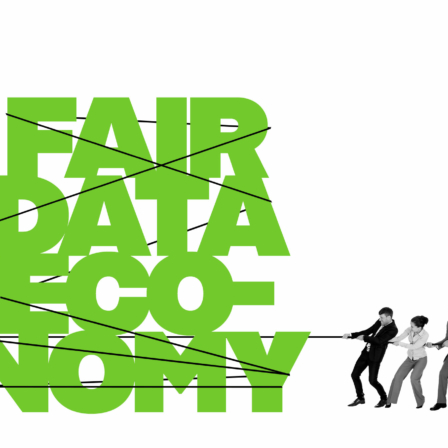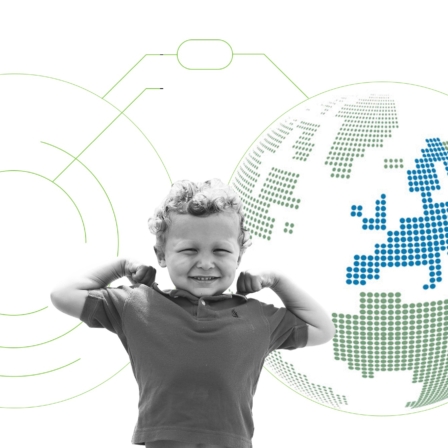Creating a European data economy lies in the centre of the EU’s Digital Single Market strategy. According to its rationale, digital data – both personal and non-personal – is an essential resource for economic growth, competitiveness, innovation, job creation and societal progress in general. In order to make the best possible use of digital data, Europe needs an army of visionary data workers. Yet, already now we are facing some severe shortages of data professionals.
Professionals and visionaries in charge of creating the digital future
According to International Data Corporation (IDC) and the Lisbon Council, in 2017 there was a total of 5.3 million of data professionals in EU27 and 6.7 million on the EU28. The number of workers who collect, store, manage or analyse data as their primary activity represent about 3% of the EU28 workforce. In IDC and the Lisbon Council’s baseline forecast for the future, by 2025 there will be some 11.5 million data workers in the EU28.
Nevertheless, a structural imbalance persists between demand and supply of data skills in Europe – according to Cedefop, ICT (Information and Communication Technologies) and STEM (Science, Technology, Engineering and Math) professionals are among the top 5 mismatch priority occupations for EU28. The main reason is insufficient supply of graduates from upper-secondary and higher education to meet increasing demand. Presently almost 400,000 data professional positions remain unfilled in EU28.
But data professionals are not the only category of people we will need. Europe will also need digital visionaries – from business models creators, service designers, Artificial Intelligence (AI) engineers, to user experience designers – who would be able to make the best use of existing technologies to build innovative services. Technological advances such as AI, automation and robotics can create opportunities to improve our lives but we need real people with specific skill sets and cross-sectoral knowledge to make it happen.
For example, now algorithms and specialized software are already being used in healthcare to support human cognition in the analysis of complex data. While AI will most likely change dramatically diagnostic medicine, it is believed that it will also improve the quality of life of the growing population of elderly in developed countries. Yet, the full potential of new technologies can be utilized only if there are digital visionaries who are able to see it.
There is also a responsibility side to it. First, we need a “human-in-command” approach to AI that ensures that fundamental decisions are taken by humans. Data professionals and digital visionaries have a task of the utmost importance here – to ensure that people are at the centre of economic policy and business practice.
Second, all relevant ethical issues should be taken into account while processing data and designing services. Data protection is a fundamental human right linked to the autonomy and human dignity, and the principle that everyone should be valued and respected. Data professionals and digital visionaries should always keep in mind that the data they work with is rarely just numbers and that solutions and innovations they develop affect real people in real life.
It is already a truism to say that today’s skills will not match the jobs of tomorrow. But what skills will we need for future jobs and how to ensure that they are acquired through education?
There seems to be a European consensus that in order to answer these challenges, policy makers and business leaders should pay more attention and invest into ICT and STEM skills through school systems and effective retraining for mid-career workers. Investments in data science education are also needed in the workplace (training on the job, creating multidisciplinary teams). The recognition of universal entitlement to lifelong learning, as suggested by ILO, seems to be inevitable.
While shortages in skills relate to such areas as mathematics, statistics, computer science and data-intensive scientific fields (experimental physics, molecular biology and bioinformatics), it is being more and more often suggested that in order to make the best use of big data, diverse skills are needed, including also for (data-aware) managers. The so-called right mix of skills and competencies would allow for combining quantitative training with an understanding of human behaviour and social systems in order to apply the insights that big data analytics can provide. Measures are also needed to address gender equality in the technology-enabled jobs of tomorrow.
Questions
The problem of supply of data professionals and digital visionaries for the human-driven data economy can be approached from many angles, including social, philosophical and ethical perspectives. We propose to focus discussion around the following questions:
- How to educate and train data professionals and digital visionaries in the human-driven data economy? What do we expect from the schooling system – producing of professionals who are skilled with advance analytics tools and methodologies and can work with gigabytes or terabytes of data, professionals who are more focused on troubleshooting, or both?
- Is there really a right mix of skills and competences for data professionals and digital visionaries that can be standardized and taught?
- What is the role of humanities in education and training of data professionals and digital visionaries? How to ensure that they will consider ethics in their work and know that the data they work with relates to real people? How to educate them about consequences of data misuse?
Sitra’s guest atricles give a voice to the players of the future in different fields. They do not (necessarily) directly link to Sitra’s work or agenda, but are the authors’ thoughts on current issues that relate to the themes Sitra is passioned about.









LATEST
Read more